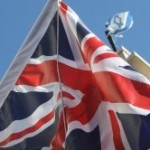 One day after British Foreign Secretary William Hague condemned the announcement of expansion in Iran’s nuclear program, the matter was a topic of conversation on Tuesday between Deputy Foreign Minister Danny Ayalon and British Minister for the Middle East Alistair Burt. Meanwhile, the Arab Spring came up in Defense Minister Ehud Barak’s meeting with his Greek counterpart, also on Tuesday.
One day after British Foreign Secretary William Hague condemned the announcement of expansion in Iran’s nuclear program, the matter was a topic of conversation on Tuesday between Deputy Foreign Minister Danny Ayalon and British Minister for the Middle East Alistair Burt. Meanwhile, the Arab Spring came up in Defense Minister Ehud Barak’s meeting with his Greek counterpart, also on Tuesday.
The UK was strongly critical of Iran’s announcement to begin uranium enrichment for nuclear fuel in their underground Fordo facility near the city of Qom, with Hague calling into question Iran’s claims regarding the project’s peaceful use. In their meeting on Tuesday, Burt told Ayalon that the UK is planning additional economic sanctions on Iran.
According to a press statement released after the meeting, Burt said that the UK plans to target Iranian oil in future sanctions. The European Union is set to discuss possible restrictions on the import of Iranian crude oil towards the end of this month.
Burt spoke more generally about British efforts towards Iran in a speech on Tuesday at Bar Ilan University. According to a transcript of the speech posted on the British Embassy to Israel website, Burt said, “In 2012, we will step up our efforts to stop the Iranian attempt to acquire nuclear weapons… No option is being taken off the table, as we pursue our dual-track approach of increasingly tough economic sanctions while remaining open to dialogue with Tehran.”
The British official noted that sanctions are hitting the Iranian economy, saying, “As the pressure continues to rise, the Iranian regime will face the prospect of a choice between its nuclear program and maintaining its oil income.
“There are no guarantees, and I can give no cast iron assurance of success. But I believe sanctions can work, and I know they are for now the best tool we have to achieve our shared goal.”
In his meeting with Ayalon, Burt updated the Israeli official on past British steps to cut off financial ties with all Iranian financial institutions. Ayalon praised the relationship between Israel and the UK, keeping the Iranian threat in mind.
“The discussions held today with Minister Burt are another example of the strong relationship between our nations, and the shared concerns we have over developments in the region,” said Ayalon, “especially concerning the unacceptable steps taken by the Iranian authorities towards the development of nuclear weapons which are a threat to regional and global stability.”
The two officials are set to meet again in London next week. In addition to Iran, they also discussed the recent meetings in Jordan between Israeli and Palestinian officials aiming to restart peace talks, as well as the regional situation in light of the Arab Spring.
The regional uprisings, which have come to be known as the Arab Spring, were also a topic between Barak and Greek Defense Minister Dimitris Avramopoulos on Tuesday. A press readout of the two-hour meeting said it involved a “range of contemporary regional issues.”
The Arab Spring, in which long-time dictators have been replaced with plans for democracy that may include an increase in influence from harder-line Islamic elements, has already had an impact on Israel. In Egypt, the restructuring of the government there has raised questions about Israel’s peace treaty with the Muslim nation.
Barak addressed the regional situation, saying, “We are witnessing dramatic changes in the Middle East on a magnitude that we haven’t seen for decades. It is hard to know where those [changes] will lead, and it is important to consider all the scenarios.”
(By Joshua Spurlock, www.themideastupdate.com, January 10, 2012)
